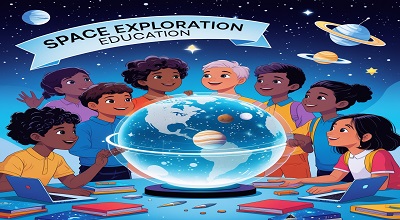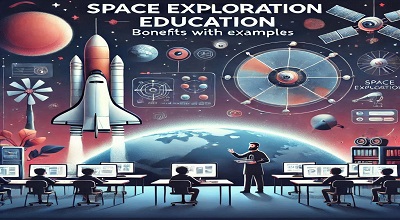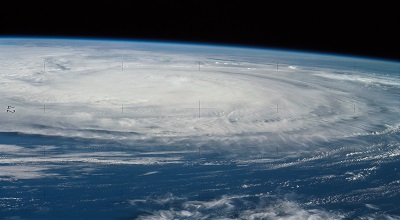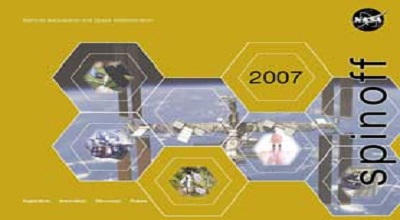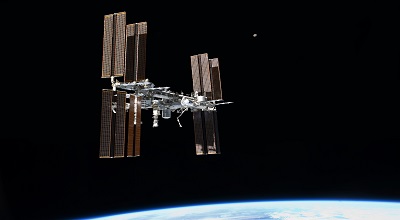Space Exploration Education
Space exploration has captivated human imagination for centuries, pushing the boundaries of our knowledge and understanding of the universe. As we venture beyond our planet, the educational benefits of space exploration become increasingly evident. This article delves into the myriad advantages of space exploration education, supported by examples that illustrate its profound impact on society, technology, and individual growth.
Introduction to Space Exploration
Space exploration refers to the investigation of outer space through the use of crewed and uncrewed spacecraft. This endeavor not only enhances our understanding of the cosmos but also yields significant benefits for humanity. The knowledge gained from space missions has far-reaching implications, influencing various fields such as science, technology, engineering, and mathematics (STEM), as well as inspiring future generations.
The Importance of Education in Space Exploration
Education plays a crucial role in space exploration. It equips individuals with the necessary skills and knowledge to contribute to this field. By integrating space exploration into educational curricula, we can foster curiosity, critical thinking, and problem-solving abilities among students. This approach not only prepares them for careers in STEM but also encourages them to become informed citizens who understand the importance of scientific inquiry.
Benefits of Space Exploration Education
1. Inspiration and Motivation
One of the most significant benefits of space exploration education is its ability to inspire and motivate students. The awe-inspiring nature of space missions, such as the Apollo moon landings or the Mars rover explorations, captures the imagination of young minds. This inspiration can lead to increased interest in STEM fields, encouraging students to pursue careers in science, technology, engineering, and mathematics.Example: The Mars Rover missions have sparked interest in planetary science among students. Schools often organize events where students can simulate rover missions, fostering teamwork and problem-solving skills.
2. Development of Critical Skills
Space exploration education promotes the development of critical skills essential for the 21st century. Students engage in hands-on activities that require analytical thinking, creativity, and collaboration. These skills are not only applicable in scientific fields but are also valuable in various professions.Example: Programs like NASA’s “Space Grant” initiative provide students with opportunities to work on real-world projects, such as designing experiments for space missions. This experience enhances their problem-solving abilities and prepares them for future challenges.
3. Technological Advancements
The pursuit of space exploration has led to numerous technological advancements that benefit society. Educational programs that focus on space exploration often highlight these innovations, demonstrating their practical applications in everyday life.Example: Technologies developed for space missions, such as satellite communication and GPS, have transformed how we live and work. Educational initiatives that showcase these technologies help students understand their relevance and encourage them to innovate further.
4. Global Collaboration
Space exploration is a global endeavor that fosters international collaboration. Educational programs that emphasize this aspect teach students the importance of teamwork and cultural understanding. By working together on space missions, countries can share knowledge and resources, promoting peace and cooperation.Example: The International Space Station (ISS) is a prime example of global collaboration in space exploration. Educational programs that focus on the ISS highlight the contributions of various countries, encouraging students to appreciate diversity and teamwork.
5. Environmental Awareness
Space exploration provides a unique perspective on Earth and its environment. Educational initiatives that incorporate space data can enhance students’ understanding of environmental issues, such as climate change and resource management.Example: Programs that utilize satellite imagery to study deforestation or urbanization help students grasp the impact of human activities on the planet. This knowledge fosters a sense of responsibility and encourages students to advocate for sustainable practices.
6. Career Opportunities
As the space industry continues to grow, so do the career opportunities within it. Space exploration education prepares students for a wide range of careers, from engineering and research to policy-making and education.Example: Organizations like SpaceX and Blue Origin are expanding the job market in the aerospace sector. Educational programs that focus on space exploration can guide students toward these emerging career paths, ensuring a skilled workforce for the future.
7. Enhancing STEM Education
Integrating space exploration into STEM education enhances the learning experience. It provides a context for students to apply theoretical knowledge to real-world problems, making learning more engaging and relevant.Example: STEM curricula that include space-related projects, such as building model rockets or conducting experiments in microgravity, allow students to experience the scientific process firsthand. This hands-on approach reinforces their understanding of scientific concepts.
Examples of Space Exploration Education Programs
1. NASA’s Education Programs
NASA offers a variety of educational programs aimed at inspiring students and educators. These programs include workshops, online resources, and hands-on activities that align with national education standards.
2. The Mars Society’s Education Initiative
The Mars Society promotes education about Mars exploration through various initiatives, including student competitions and educational resources. Their programs encourage students to think critically about the challenges of living on Mars and the technologies needed for exploration.
3. Space Camp
Space Camp is a popular program that immerses students in the world of space exploration. Participants engage in simulations, team-building exercises, and hands-on activities that foster a love for science and exploration.
4. STEM Outreach Programs
Many universities and organizations offer STEM outreach programs that focus on space exploration. These programs often involve partnerships with local schools to provide resources, mentorship, and hands-on experiences for students.
5. Online Learning Platforms
With the rise of online education, various platforms offer courses and resources related to space exploration. These platforms make space education accessible to a broader audience, allowing students to learn at their own pace.
FAQs About Space Exploration Education
1. What is space exploration education?
Space exploration education refers to the teaching and learning of concepts related to space exploration, including the science, technology, and engineering involved in exploring outer space.
2. How does space exploration inspire students?
Space exploration inspires students by capturing their imagination and curiosity. The excitement of missions and discoveries encourages them to pursue careers in STEM fields.
3. What skills do students develop through space exploration education?
Students develop critical thinking, problem-solving, teamwork, and creativity through hands-on activities and projects related to space exploration.
4. What are some examples of space exploration technologies?
Examples of space exploration technologies include satellite communication, GPS, and materials developed for spacecraft that have applications in various industries.
5. How does space exploration promote global collaboration?
Space exploration promotes global collaboration by bringing together scientists, engineers, and educators from different countries to work on shared goals, fostering cultural understanding and teamwork.
6. What career opportunities are available in the space industry?
Career opportunities in the space industry include roles in engineering, research, policy-making, education, and various support services related to space missions.
7. How can educators incorporate space exploration into their curricula?
Educators can incorporate space exploration into their curricula by using hands-on projects, integrating space-related topics into STEM lessons, and utilizing resources from organizations like NASA.
Conclusion
Space exploration education offers a wealth of benefits that extend far beyond the confines of the classroom. By inspiring students, developing critical skills, and fostering global collaboration, space exploration education plays a vital role in shaping the future of our society. As we continue to explore the cosmos, the educational opportunities it presents will undoubtedly lead to a more informed, innovative, and engaged generation ready to tackle the challenges of tomorrow.
